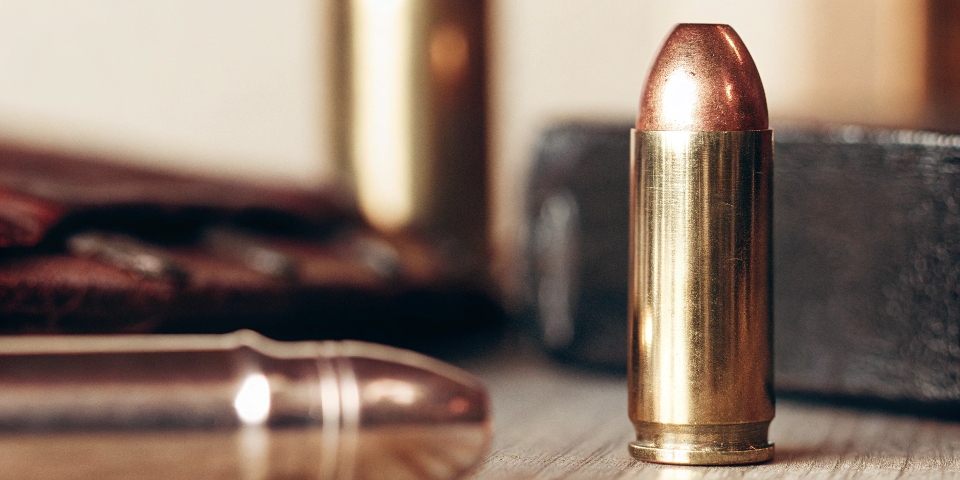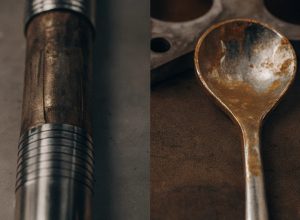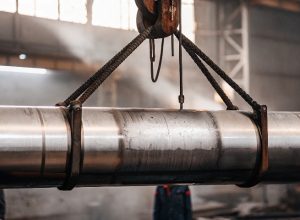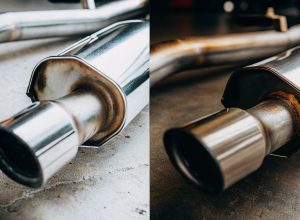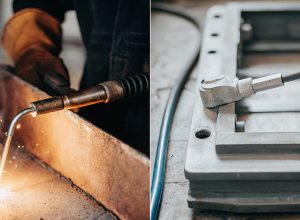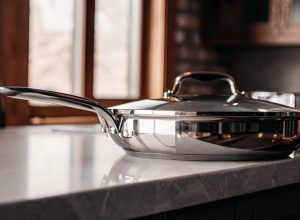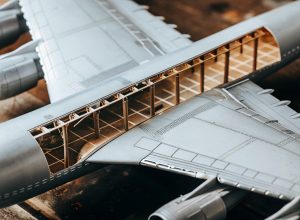Услышав слово "золотой титан", вы думаете о высочайшей прочности? Полагаться на крутое название в вопросе безопасности - большой риск. Я расскажу вам о фактах.
Нет, золото-титановый сплав не рассматривается. пуленепробиваемый1. Хотя он обладает такими хорошими качествами, как устойчивость к коррозии, его твердость не соответствует строгим требованиям, предъявляемым к баллистическая защита2. Материалы, разработанные специально для остановки пуль, такие как бронированная сталь3 или специализированные композиты, необходимые для этой работы.
Итак, прямой ответ - нет. Но это простое "нет" открывает новые вопросы. Почему он не пуленепробиваемый? Для чего он на самом деле годится? И какие материалы это пуленепробиваемый? В своей работе на заводе я помогаю менеджерам по продуктам, таким как вы, разобраться в этих деталях. Давайте углубимся в специфику, чтобы вы могли доходчиво объяснить эти различия своей команде и клиентам.
Является ли титаново-золотой сплав пуленепробиваемым?
Вы все еще задаетесь вопросом, может ли сплав титана и золота остановить пулю? Путать его премиальный вид с баллистическими характеристиками - распространенная и рискованная ошибка. Я объясню научные основы его ограничений.
Нет, сплав титана и золота не является пуленепробиваемым. Его основными преимуществами являются биосовместимость4 и противостоять коррозии, но не останавливать высокоскоростные снаряды. Твердость материала просто недостаточно высока, чтобы эффективно деформировать или раздробить пулю, что является ключевым требованием к любой баллистической броне.
Исходя из моего опыта разработки сплавов, свойства, которые делают материал хорошим для одного применения, часто делают его непригодным для другого. Пуленепробиваемый материал должен обладать исключительной твердостью и способностью поглощать огромное количество кинетической энергии в одно мгновение. Золото - очень мягкий и плотный металл. Сплав его с титаном создает новый материал, но не придает ему волшебным образом баллистических свойств.
Понимание баллистических характеристик
Броня работает за счет того, что она тверже, чем сердцевина пули. Она заставляет пулю разбиваться или деформироваться, распределяя ее энергию по пластине. Золото-титановые сплавы, часто создаваемые для ювелирных изделий или медицинских приборов, не обладают такой высокой твердостью. Они предназначены для износостойкости и инертности, а не для того, чтобы выдерживать высокоскоростные удары. Атомная структура просто не рассчитана на рассеивание такой силы.
Роль легирующих элементов
Добавление золота в титан может сделать полученный сплав более хрупким, а это совсем не то, что нужно для брони. Броне нужна прочность - способность деформироваться, не разрушаясь. Вот простая разбивка материалов.
| Материал | Ключевое свойство | Типичное использование | Пригодность для брони |
|---|---|---|---|
| Чистое золото | Податливый, мягкий | Ювелирные изделия, электроника | Очень плохо |
| Золото-титановый сплав | Биосовместимый, тверже золота | Медицинские имплантаты, предметы роскоши | Бедный |
| Баллистическая сталь | Чрезвычайная твердость, прочность | Бронепластины | Превосходно |
| Титановый сплав (например, Ti-6Al-4V) | Высокая прочность по отношению к весу, прочный | Аэрокосмическая промышленность, бронетехника | От хорошего до отличного |
Эта таблица показывает, что выбор материала - это выбор правильного инструмента для работы. Вы не станете использовать гаечный ключ, чтобы забить гвоздь, и не станете использовать золото-титановый сплав для изготовления брони.
Прочен ли золото-титановый сплав?
Если он не может остановить пулю, то является ли золото-титановый сплав вообще прочным? Использование слова "прочный" без контекста может ввести в заблуждение при техническом применении. Я определю его конкретные сильные стороны.
Да, он прочен в определенных отношениях. Золото-титановый сплав обладает отличным соотношением прочности и веса и превосходной коррозионной стойкостью. Это делает его высокопроизводительным материалом для таких специализированных применений, как предметы роскоши5Зубные имплантаты или специальные аэрокосмические компоненты, но только не броня.
Когда инженер или менеджер по продукции, например Лиза, спрашивает меня, является ли материал "прочным", я всегда спрашиваю: "Прочным в каком смысле?" Прочность - это не одно свойство. Существует множество способов ее измерения, и каждый из них важен по разным причинам. Материал может быть сильным в одной области и слабым в другой. Для золото-титановых сплавов их сила заключается в уникальном сочетании свойств, которые служат для нишевых, дорогостоящих рынков.
Определение понятия "прочность" в металлургии
В моей лаборатории мы измеряем различные виды прочности. Прочность на разрыв - это то, насколько сильно вы можете потянуть материал, прежде чем он сломается. Твердость - это способность противостоять царапинам и вмятинам. Жесткость - это способность поглощать удары, не разрушаясь. Золототитановый сплав6По имеющимся данным, сплав Ti₃Au (три части титана, одна часть золота) в четыре раза тверже чистого титана. Это делает его идеальным материалом для медицинских имплантатов, которые должны противостоять износу и разрушению в течение десятилетий внутри человеческого тела.
Области применения, в которых золото-титан имеет преимущество
Уникальная сила этого сплава заключается в сочетании твердости, биосовместимости и коррозионной стойкости. Человеческое тело - очень агрессивная среда. Этот материал может противостоять ей, не разрушаясь и не вымывая вредные ионы. В этом его истинная сила.
| Метрика | Чистый титан (Grade 2) | Золото-титановый сплав (Ti₃Au) | Актуальность применения |
|---|---|---|---|
| Твердость | Умеренный | Очень высокий | Сопротивляется износу суставов |
| Биосовместимость | Превосходно | Превосходно | Безопасен для долгосрочной имплантации |
| Устойчивость к коррозии | Превосходно | Превосходный | Выдерживает воздействие жидкостей организма |
| Баллистическая стойкость | Плохо (в этом классе) | Бедный | Не предназначен для ударов |
Так что да, это очень прочный материал, но его сильные стороны лучше всего использовать для спасения жизней с помощью медицины, а не для остановки пуль.
Может ли титан выдержать пулю?
Мы отбросили золотой сплав, но как насчет самого титана? Он известен своей прочностью. Может ли титан остановить пулю? Ответ на этот вопрос зависит от ключевых факторов, о которых я расскажу.
Да, некоторые титановые сплавы могут противостоять пулям при определенных условиях. Титан баллистического класса, например Ti-6Al-4V, при достаточной толщине может остановить огонь стрелкового оружия. Он часто используется в военных целях, например, в кабинах истребителей или в составе композитных бронированных систем.
Этот вопрос мне задают часто, и ответ на него - однозначно да, но с важными условиями. Тип титана и его толщина - это все. Занимаясь ковкой высокоэффективных сплавов, я знаю, что не все титаны созданы одинаковыми. Нельзя взять тонкий лист коммерчески чистого титана и ожидать, что он остановит пулю. Для работы нужен правильный сплав и правильная толщина.
Важность марки и толщины
Наиболее распространенным титановым сплавом, используемым для баллистических целей, является Ti-6Al-4V, также известный как Grade 5. Это аэрокосмический сплав, который ценится за высокую прочность и вязкость. Он значительно прочнее чистого титана. Однако даже для сплава Grade 5 толщина является критическим фактором, определяющим, что он может остановить. Толщина пластины, достаточная для того, чтобы остановить 9-миллиметровый пистолетный патрон, не будет достаточной для того, чтобы остановить высокоскоростной винтовочный патрон. Инженерная задача всегда состоит в том, чтобы обеспечить достаточную защиту, не увеличивая при этом вес.
Как работает титановая броня
Титановая броня работает так же, как и стальная, но при меньшем весе. Когда пуля ударяется о толстую пластину из Ti-6Al-4V, чрезвычайная твердость и прочность пластины поглощают и распределяют кинетическую энергию. Пластина слегка деформируется, но не дает снаряду пробить ее. Основное преимущество пластины перед сталью - превосходное соотношение прочности и веса. При одинаковом уровне защиты титановая пластина может быть значительно легче стальной. Именно поэтому этот материал выбирают для защиты пилотов военных самолетов или для брони специализированных наземных транспортных средств, где вес является главной проблемой.
| Уровень угрозы (пример) | Снаряд | Требуемая толщина Ti-6Al-4V (прибл.) |
|---|---|---|
| Ручной пулемет | 9 мм FMJ | 6-8 мм |
| Промежуточная винтовка | 5,56 мм M193 | 12-15 мм |
| Полнокалиберная винтовка | 7,62 мм M80 | 18-22 мм |
Как видите, для остановки пули требуется значительное количество этого высокотехнологичного материала.
Какой сплав является пуленепробиваемым?
Так какие же материалы действительно созданы для того, чтобы быть пуленепробиваемыми? Это не один сплав, а целая семья специализированных материалов. Я выделю наиболее распространенные и эффективные из них.
Ни один сплав не является универсальным "пуленепробиваемым". Материалы оцениваются по баллистической стойкости на основе стандартов, например NIJ. Обычно выбирают стали высокой твердости (AR500), специализированные титановые сплавы и передовые композитные материалы, например керамические пластины, подкрепленные такими материалами, как кевлар или Dyneema7.
В мире защитных материалов "пуленепробиваемый" - это маркетинговый термин. Как инженер, я говорю в терминах "баллистической стойкости", измеряемой по определенным стандартам. Для такого менеджера по продукции, как Лиза, наиболее важным стандартом в США является стандарт Национального института юстиции, или NIJ. Эти стандарты определяют, какую степень защиты обеспечивает броня. Затем выбирается материал, соответствующий этому стандарту.
Понимание баллистических стандартов (NIJ)
NIJ устанавливает уровни защиты. Например, уровень NIJ IIIA предназначен для остановки большинства выстрелов из ручного оружия. Уровень NIJ III предназначен для обычных винтовочных патронов, а уровень NIJ IV - для бронебойных винтовочных патронов. Когда клиент просит "пуленепробиваемый" материал, первый вопрос должен звучать так: "До какого уровня NIJ?". Это определяет весь проект. Только после этого можно выбрать подходящий материал, поскольку каждый из них имеет свои компромиссы в отношении веса, стоимости и характеристик.
Сравнение материалов брони
Существует три основные категории материалов, которые мы используем для изготовления баллистической брони. Каждый из них имеет свое место, в зависимости от области применения и бюджета.
| Тип материала | Ключевое преимущество | Основной недостаток | Общее приложение |
|---|---|---|---|
| Закаленная сталь (например, AR500) | Низкая стоимость, высокая долговечность | Очень тяжелый | Бронетехника, Цели |
| Титановый сплав (например, Ti-6Al-4V) | Легче, чем сталь | Высокая стоимость | Авиационная броня, VIP-транспортные средства |
| Керамика/композит | Самый легкий вес | Очень высокая стоимость, хрупкость | Личная броня (пластины) |
Как видите, выбор материала - это балансировка. Сталь дешева и эффективна, но тяжела. Титан экономит вес, но стоит дороже. Композитные материалы обеспечивают наилучшую экономию веса, но являются самыми дорогими и часто могут выдержать только один удар в одно и то же место, прежде чем потребуют замены. Не существует идеального "пуленепробиваемого" сплава, есть только лучший выбор для конкретной задачи.
Заключение
Золото-титан не является пуленепробиваемым. Настоящую баллистическую защиту обеспечивают сертифицированные материалы, такие как бронированная сталь, титановые сплавы или композитные материалы, которые выбираются с учетом уровня угрозы, веса и стоимости.
-
Узнайте о материалах, которые действительно пуленепробиваемы, и об их применении в броне. ↩
-
Узнайте, как определяется баллистическая защита и какие стандарты используются для ее измерения. ↩
-
Изучите преимущества использования бронированной стали для баллистической защиты и ее эффективность. ↩
-
Узнайте, почему биосовместимость имеет решающее значение для медицинских имплантатов и как она влияет на безопасность пациентов. ↩
-
Изучите применение золото-титановых сплавов в предметах роскоши и их рыночную привлекательность. ↩
-
Узнайте о различных титановых сплавах и их специфическом применении в различных отраслях промышленности. ↩
-
Узнайте о Dyneema, высокоэффективном материале, используемом в броне, и его преимуществах. ↩

